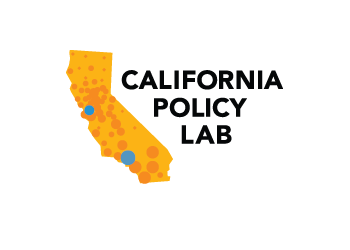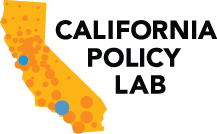- By:
- Category:

Berkeley–Low-income high school students in California may utilize millions of dollars more in Cal Grant funds, according to early findings from a letter redesign study conducted by the California Policy Lab and the state’s Student Aid Commission.
The pilot project simplified letters sent to 130,000 eligible Cal Grant recipients and also tested a behavioral “nudge” that emphasized that the student “belongs in college.” Those who received simplified letters were nine percent more likely to register for the online Cal Grants system by June of their senior year of high school. Even more encouraging, those who received letters emphasizing that they belonged in college were four percent more likely to register than those who received nearly identical letters without that emphasis.
“Small fixes can dramatically improve a program’s success,” said California Policy Lab Executive Director, Evan White. “Thanks to a simple, no-cost letter redesign informed by behavioral science, student Cal Grant use could potentially increase by millions of dollars. That’s a lot of new students now able to attend college and improve their career options.”
“We’re excited by this outcome,” said Student Aid Commission Executive Director Lupita Cortez Alcalá, noting the real test will come when final results appear this winter. “We are already looking at how to apply what we learned this year to future communications with students.”
The results also demonstrate the value of research partnerships between academics and public agencies. The California Policy Lab, based at UC Berkeley and UCLA, pairs academic expertise with state and local public agencies to carry out quantitative research to solve the state’s urgent problems. The Lab is working with other agencies to increase the uptake of the the California Earned Income Tax Credit.
The Lab continues to work with the Student Aid Commission to test several new letter variations, including a version that provides students with additional information about college costs and sources of aid. The goal is to debunk myths about college costs and show apples-to-apples cost comparisons across different schools.
Study details
- Starting last Fall, CPL worked with state officials to redesign the notification letter mailed to low-income, high-performing high school students who qualify for a Cal Grant. This letter urged students to start the Cal Grants process by creating an account on the Aid Commission’s online portal. The Commission wanted to evaluate the impact of these changes, with the goal of increasing Cal Grant uptake and college enrollment.
- The pilot randomly assigned students at each California high school to receive one of three letters: (1) the existing letter, (2) a simplified variation that highlighted the action needed to enroll, or (3) a nearly identical simplified letter that contained two additional sentences, printed in bold: “You have shown that you’re the kind of person who belongs in college. We’ve been working hard to help you get there!”
- Between November 1, 2017 and May 1, 2018, notification letters were mailed to 131,903 students in 2,298 schools. The average annual household income for these students was a little over $30,000, and two thirds of the students did not have parents who attended college.
- Results show that 62.0% of students who received the original letter had registered for accounts by June 11, 2018, compared to 67.6% who received the simplified letter and 69.0% who received the letter with additional sentences about belonging.
View the report at https://www.capolicylab.org/increasing-the-take-up-of-cal-grants
About the California Policy Lab
The California Policy Lab is a new initiative at UC Berkeley and UCLA designed to create data-driven insights for the public good. CPL’s mission is to partner with California’s state and local governments to generate scientific evidence that solves California’s most urgent problems, including homelessness, poverty, crime, and education inequality. CPL facilitates close working partnerships between policymakers and researchers at UCLA and UC Berkeley to help evaluate and improve public programs through empirical research and technical assistance.
